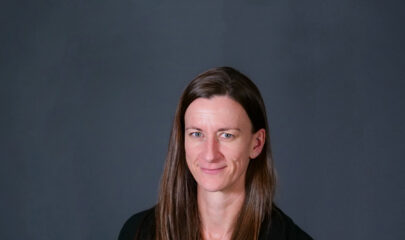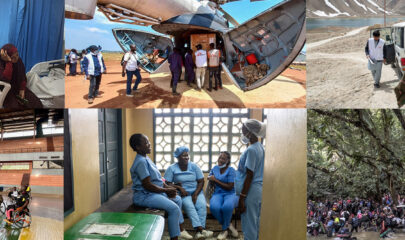On May 11, United States president Joe Biden declared an end to the COVID-19 public health emergency nationally. This also meant an end to Title 42, a public health order that prevented people from seeking asylum at the southern U.S. border for more than three years.
Invoked by then-president Donald Trump’s administration in 2020 and repeatedly extended by the Biden administration, Title 42 allowed border officials to block entry to people seeking protection. It was used to authorize more than 2.8 million expulsions of people to border cities in Mexico.
This caused a humanitarian catastrophe. Thousands of people found themselves with limited access to shelter, food and healthcare while facing threats of violence in cities without the resources to meet their immense needs.
Doctors Without Borders/Médecins Sans Frontières (MSF) teams providing medical and mental healthcare in cities such as Reynosa, Matamoros, Piedras Negras and Ciudad Acuña are witnessing the devastating impact of this policy firsthand.
NEW BARRIERS TO ASYLUM
“It’s great news that Title 42 [has] finally ended. It falsely used public health to block people from seeking asylum and put countless people in danger,” says Adriana Palomares, MSF country director in Mexico and Central America.
“We were hoping that processes to welcome those seeking protection would be restored with the end of Title 42. Unfortunately, the Biden administration appears focused on erecting new barriers to accessing asylum,” says Palomares. “We know policies of deterrence don’t work and all this will do is expose more people to violence and danger.”
In addition to instituting new immigration policies, the U.S. government has returned to processing people who have been displaced under an immigration law known as Title 8. Under this law, people can face a fine or penalty before being deported. If caught trying to re-enter the United States, they can face criminal charges and be banned from entering the country or seeking asylum for up to 20 years.
“The Biden administration promised to build a safe, fair and humane immigration system,” says Palomares. “Instead, it has continued or expanded ways to keep people from seeking asylum at the border. For many of the patients we treat along the migration route, returning home is not an option. Pushing migrants back, detaining them, abandoning them or purposefully making the process so difficult they just give up their quest to reach the United States is cruel policy that only endangers people.”
An additional barrier to seeking asylum is the fact that people have had to use a digital phone application called CBP One to schedule port of entry appointments. Often stranded for months in terrible conditions and without electricity or internet access, many people find it impossible to schedule these appointments through a mobile phone.
Testimonies gathered by MSF teams show that CBP One was not running correctly on some phones; there were very few appointments released each day; and sometimes the only appointments available were in cities thousands of kilometres away. Some asylum seekers had to buy a new phone with a better camera because the app requested a photograph. Others did not have access to a phone or Wi-Fi or could not complete the form as they did not read English or Spanish.
PEOPLE NEED A DIGNIFIED AND SAFE ASYLUM SYSTEM
Magaly Margarita, a woman from Venezuela, spent four months in Matamoros with her two daughters, ages three and five. Her family lived in a small tent on the banks of the Rio Bravo, in a camp for people who are displaced. Margarita made an appointment through CBP One for Feb. 28 but was turned away by immigration officials because she had not registered her daughters.
She was unable to make a new appointment – and then her cell phone stopped working.

request through CBP One, but were turned away when they showed up for their interview because they did not appear in the system.
Mexico, 2023. © Yesika Ocampo/MSF
For many, returning home is not an option.
“I haven’t been able to log in to the application for five days now. I used to log in every day. I got an error message that there is no space for the three of us, that there is no time, that there is no date. That is a very difficult process,” says Margarita, who continued selling candy on the streets of Matamoros to buy food for herself and her daughters.
“What does the future look like for people like Magaly Margarita, waiting at the northern border of Mexico or at some point along the migratory route in the region?” asks Palomares. “The tightening of measures against migrants and the lack of efficient legal options to reach the United States has a serious impact on the health of [people on the move]. It is critical that a dignified and safe asylum system be reestablished for all.”


